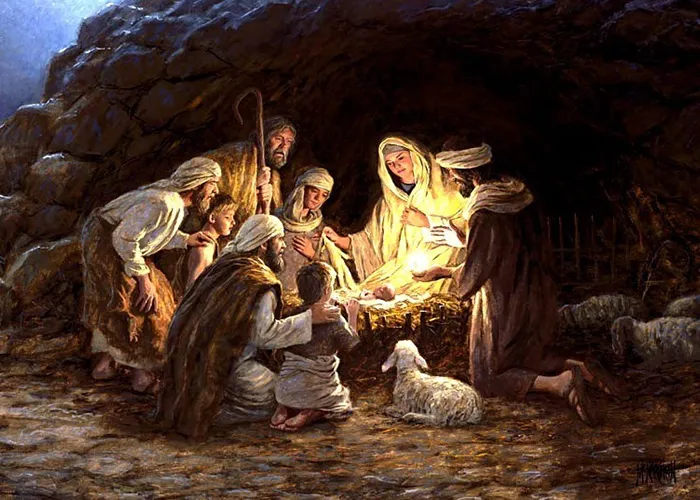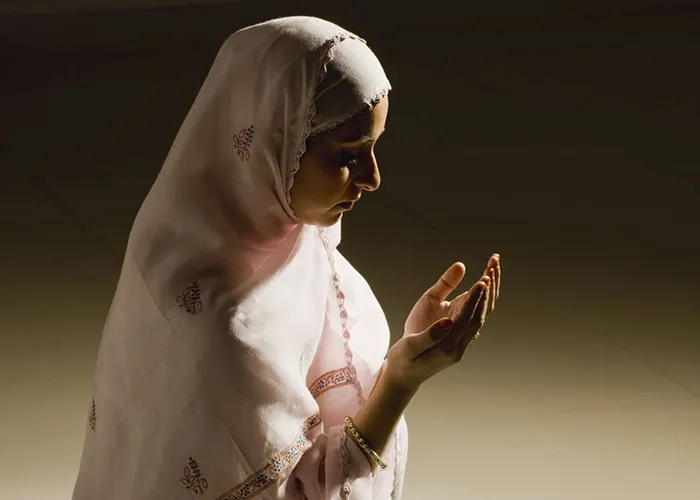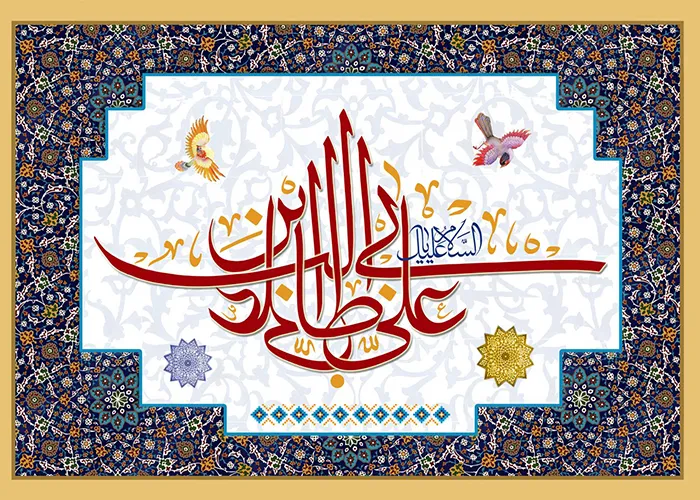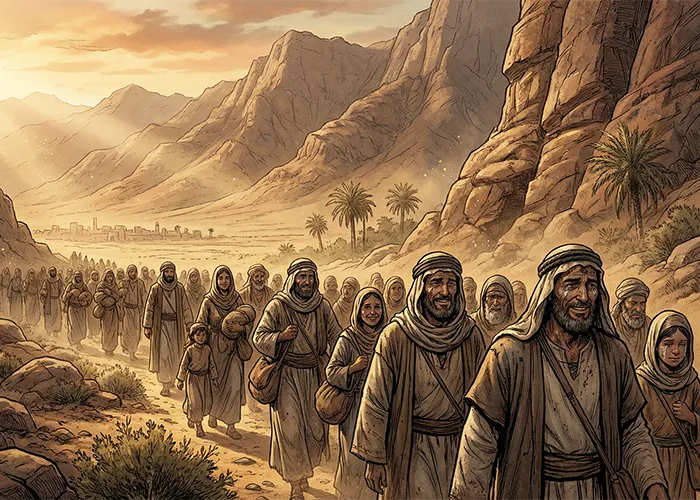Editorial – volume01 Issue27
A Journey of Spiritual Enlightenment: Reflecting on Sacred Figures and Teachings
In this week’s edition of International Friday Bulletin, we are offered an opportunity to reflect on significant events and figures that shape both our spiritual and intellectual journey. Through the lens of Islamic teachings and historical figures, we explore the powerful lessons that guide us toward deeper understanding and reflection. In this issue, we delve into the birth of Jesus (peace be upon him), the profound legacy of scholars such as Allama Hilli and Ayatollah Araki, and the significance of global health preparedness from an Islamic perspective. May these insights inspire both our faith and practice as we strive to grow in knowledge and spiritual awareness.
The Birth of Jesus (Peace Be Upon Him) in Islam
The birth of Jesus (Isa), peace be upon him, holds a profound place in Islamic tradition. Recognised as one of the five great prophets in Islam, his story is one of divine miracle and wisdom. The Qur’an describes his miraculous birth to the Virgin Mary, emphasising his purity and the unique role he played in guiding humanity. Unlike in other traditions, Jesus in Islam is revered not as the son of God but as a servant and messenger of Allah, a figure who embodies both grace and strength.
In Surah Maryam (19:31), Jesus himself speaks of the divine blessings bestowed upon him:
وَجَعَلَنِي مُبَارَكًا أَيْنَ مَا كُنْتُ وَأَوْصَانِي بِالصَّلَاةِ وَالزَّكَاةِ مَا دُمْتُ حَيًّا
“And He [Allah] made me blessed wherever I may be and enjoined upon me prayer and zakah as long as I remain alive.”
This verse highlights the mission of Jesus: to call humanity to worship and serve Allah, living a life of piety and charity. Furthermore, in Surah Maryam (19:32), Allah recounts:
وَبَرًّا بِوَالِدَتِي وَلَمْ يَجْعَلْنِي جَبَّارًا شَقِيًّا
“And [He] made me dutiful to my mother, and He did not make me a wretched tyrant.”
These verses underscore Jesus’ commitment to compassion and respect for his mother, emphasising his humble nature and devotion to Allah’s commands. These aspects of his life and message are explored further in this issue in the Ayah of the Week section.
Additionally, in the Hadith of the Week, we reflect on a profound saying of Imam al-Ridha (peace be upon him), who narrated about the inscription on the ring of Jesus (PBUH):
الإمامُ الرِضا عليه السلام: كانَ نَقْشُ خَاتَمِ عِيْسى عليه السلام حَرْفَيْنِ اشْتَقَّهُمَا مِنَ الْإِنْجِيلِ: طُوبَى لِعَبْدٍ ذُكِرَ اللهُ مِنْ أَجْلِهُ، وَ وَيْلٌ لِعَبْدٍ نُسِيَ اللهُ مِنْ أَجْلِهُ
“The inscription on the ring of Jesus (peace be upon him) consisted of two phrases derived from the Gospel: Blessed is the servant who is remembered for God’s sake, and woe to the servant who causes God to be forgotten because of him.” (Bihar al-Anwar: 11/63/1).
This Hadith encapsulates the essence of Jesus’ mission—reminding us of the importance of being a servant of Allah who leads others toward remembrance of Him.
The Demise of Ayatollah Sayyid Muhammad Ridha Gulpayigani
On the 26th of December (Jumada II 24), we commemorate the demise of Ayatollah Sayyid Muhammad Ridha Gulpayigani, one of the most revered Islamic scholars of the modern era. Known for his deep knowledge of jurisprudence and unwavering dedication to the preservation and dissemination of Islamic teachings, Ayatollah Gulpayigani’s life was a testament to the noble role of the Ulama. His contributions to Islamic education and his relentless commitment to the betterment of the Muslim community left a lasting legacy that continues to inspire scholars and students worldwide. His leadership was marked by a deep sense of humility, a profound understanding of the faith, and a strong advocacy for unity among Muslims.
The Qur’an speaks highly of those who possess knowledge and dedicate their lives to guiding others in the way of Allah. In Surah Az-Zumar (39:9), Allah says:
قُلْ هَلْ يَسْتَوِي الَّذِينَ يَعْلَمُونَ وَالَّذِينَ لَا يَعْلَمُونَ ۗ إِنَّمَا يَتَذَكَّرُ أُولُو الْأَلْبَابِ
“Say, ‘Are those who know equal to those who do not know?’ Only those of understanding will remember.”
This verse beautifully encapsulates the significance of Ayatollah Gulpayigani’s contributions. As a scholar, he was among those who not only possessed immense knowledge but also acted upon it, striving to illuminate the path for others. His works and his life of service remind us of the immense responsibility that comes with knowledge and the noble rank of the Ulama in shaping and safeguarding the moral and spiritual fabric of society.
Demise of Allama Hilli
On December 25th, we mark the passing of one of Islam’s most respected scholars, Allama Hilli (may Allah have mercy on him). Renowned for his extensive contributions to Islamic jurisprudence, philosophy, and theology, Allama Hilli’s intellect and devotion to the truth continue to inspire scholars and students of knowledge. His works in fiqh, ethics, and logic solidified his place as one of the most influential scholars of the Shi’a tradition.
The Passing of Ayatollah Mohammad Ali Araki
On December 27th, we also remember the passing of Ayatollah Muhammad Ali Araki, a prominent Shia scholar and philosopher. His work in the fields of Islamic thought and mysticism made him a respected figure in contemporary Shia scholarship. Ayatollah Araki’s approach to Islamic jurisprudence was deeply rooted in the classical Islamic tradition, yet he emphasised the importance of intellectual engagement and critical thinking in understanding the faith.
International Day of Epidemic Preparedness and Islamic Teachings on Health
The International Day of Epidemic Preparedness (27th Dec.) calls for global awareness and action in combating pandemics. Attention to health, hygiene, and disease prevention has been an integral part of human history, reflecting our innate need to preserve and enhance well-being.
Islam, as the most comprehensive religion, addresses these aspects with a holistic view of human existence, emphasizing both physical and spiritual dimensions. The teachings of Islam encourage a balanced approach to life, where the body and soul are seen as interdependent.
The Prophet Muhammad (peace be upon him) highlighted the significance of medical sciences alongside religious knowledge, underscoring their equal importance for humanity. He stated:
«الْعِلْمُ عِلْمَانِ عِلْمُ الْأَدْيانِ وَعِلْمُ الْأَبْدَانِ»
“Knowledge is of two types: the knowledge of religions and the knowledge of bodies.” (Bihar al-Anwar, Majlisi, 1/220).
This Hadith reveals that caring for physical health is not merely a practical necessity but a religious duty, aligning with the overall Islamic emphasis on a healthy and harmonious life.
Additionally, Imam Ali al-Ridha (peace be upon him) further stressed the importance of cleanliness as an essential aspect of faith and moral character. He said:
«مِنْ أَخْلَاقِ الْأَنْبِيَاءِ التَّنَظُّفُ»
“Cleanliness is among the characteristics of the prophets.” (Al-Kafi, vol. 5, p. 567, Hadith 50).
Islamic teachings thus serve as a timeless guide, promoting physical health and hygiene as integral to spiritual and societal well-being. They remind us that caring for our bodies and environment is a manifestation of gratitude to Allah for the blessings of life and health.
news via inbox
Subscribe to the newsletter.




